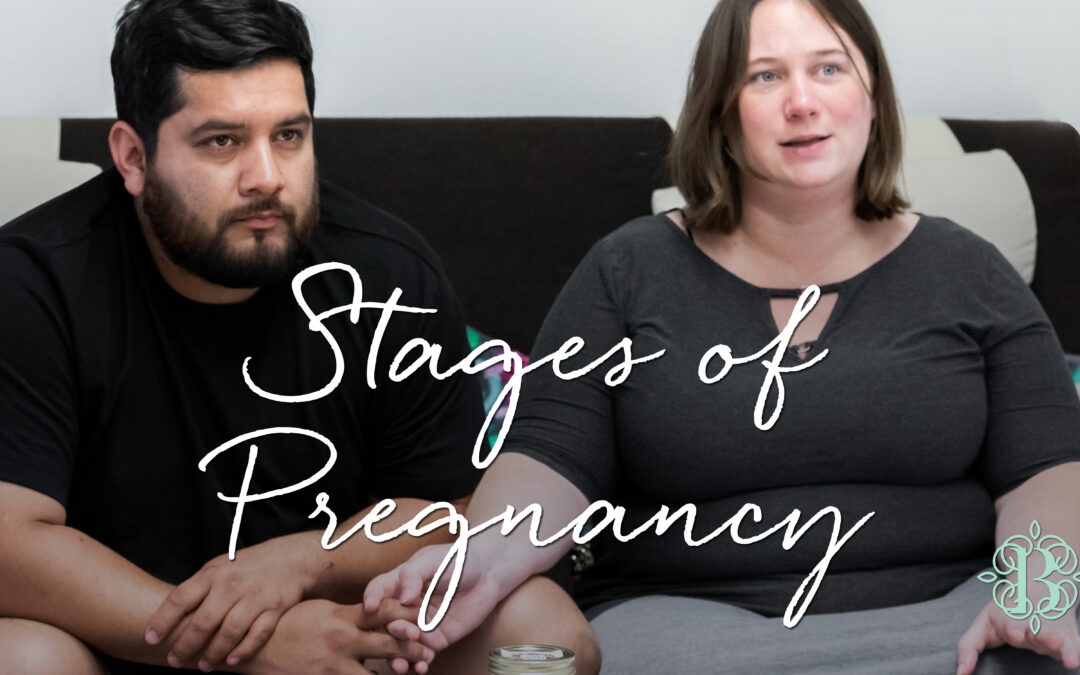Stages of Pregnancy
Pregnancy is broken up into three trimesters over 40 weeks. This timeline may vary for some mothers by 1-2 weeks, but that’s generally what a standard, healthy pregnancy duration looks like. The 9 months of your pregnancy are divided into 3 trimesters, each 3-months long.
Here’s what each of them entail:
First Trimester
The first trimester lasts from weeks 1-12. During this time, your body is getting used to the hormonal changes during pregnancy, so you might experience the usual early pregnancy symptoms during this time. These include:
- Morning sickness and nausea
- Mood swings
- Headaches
- Dizzy spells
- You might develop food cravings and food aversions
- Tender breasts
- Tiredness
These changes can take a little getting used to, so it’s recommended you rest up and be as comfortable as possible. Try to incorporate nutritious food into your diet and book an appointment with your midwife so they can advise you on supplements accordingly. They might also get baseline lab workups and ultrasounds done to ensure everything is okay.
Your baby begins to develop during this time as well; some of the major developments that occur during the first trimester include:
- The heart starts beating
- All major organ systems begin to develop
- The fingers and toes develop
Second Trimester
The second trimester begins from week 13-27. By this time, your body gets a little more used to the hormonal changes, but since your baby starts to grow, you might still experience symptoms accordingly. Your morning sickness and fatigue should be better, but you might experience increased mood swings and cravings now.
Some of the other symptoms that you might experience during this time include:
- As your belly grows, you might develop stretch marks
- The skin around your nipples may darken
- You may experience swelling in your feet
- You may start to put on some weight
As your belly grows, it might become difficult to move around and do routine tasks. However, it is recommended that you stay active. Participate in low-intensity workouts or yoga. This helps promote flexibility in your body and prevent problems like back pain. Make sure you visit your midwife for some important scans and tests.
Some of the main growth changes in your baby include:
- Development of meconium (the first poop) happens as your baby’s gut develops
- Your baby’s skin, hair, and nails develop
- The baby’s reproductive organs have formed, so you can determine the sex
- The bone marrow begins to develop blood cells
- Development of taste buds
Third Trimester
The third trimester begins from week 28 and lasts until your delivery. During this time your baby grows and your body prepares for pregnancy. You will begin to experience pressure in your pelvis as the ligaments start to stretch. As your baby grows, you might experience back pain and increasing physical discomfort.
Symptoms of the third trimester include:
- Increasing mood swings
- Brain fog and confusion
- Back pain
- Heartburn
- Leaking from nipples
- False contractions
- Frequent need to pee
Most of your baby’s organ systems have developed by now, and they just continue to grow during the last trimester. Some of the changes include:
- Your baby starts moving more frequently
- The bones begin to harden
- Lungs develop completely but don’t start working until birth
During the last trimester, just be as comfortable as possible as you prepare to welcome your baby into the world. Have your birth plan sorted and get the nursery ready for when you bring the baby home. Also, ensure you stock stuff you’ll need immediately like groceries, diapers, wipes, etc.
If you have any questions, feel free to reach out!

